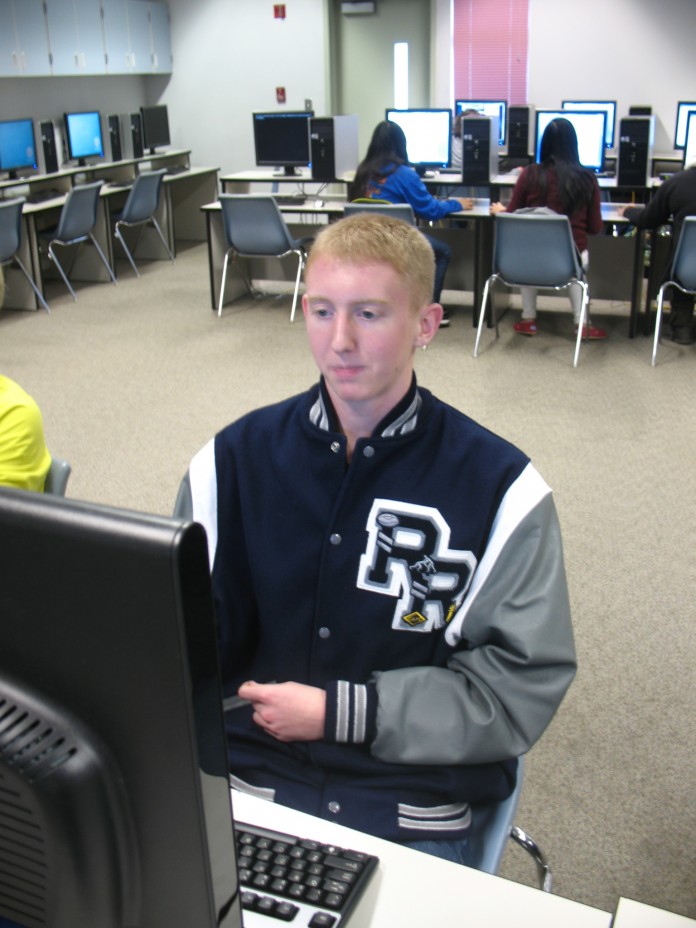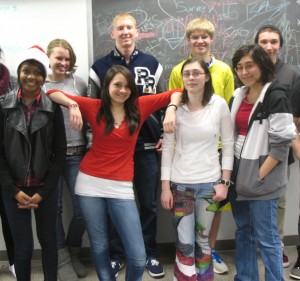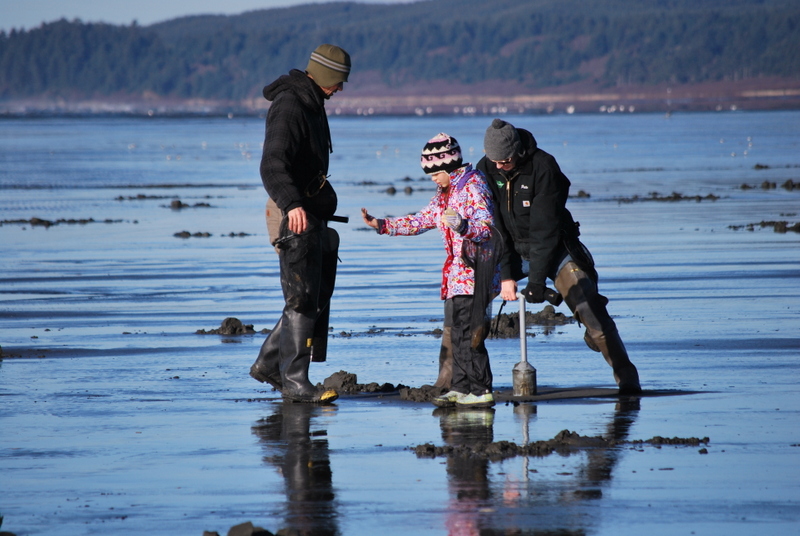
By Katie Doolittle

Teaching writing is probably the most exhilarating part of my job. It’s also the most frustrating. Every year I ask myself how to best break down such a complex and vital form of communication. Where should I focus students’ attention? On what aspects of the skill should I instruct and assess? And how can I encourage that part of writing which is purely personal—an art form, a passion, an inborn voice?
Educators at all levels are asking these questions, especially now as our state moves towards adopting the Common Core Standards in English Language Arts. Of course, nobody has come up with a magical blueprint for teaching writing. Yet on one point, teachers seem to agree: students need to write for “authentic audiences.”
What does that mean, exactly? In the case of my Advanced Placement Language and Composition class, it involved teaming up with ThurstonTalk.
Our project began in September, when editor Amy Rowley spoke to the class. She shared background on ThurstonTalk’s business model and philosophy before joining me in presenting the whole project.
Each stage mimicked what a professional freelance writer would be asked to complete. First came the pitch email, where students proposed three or four potential ideas. After ThurstonTalk’s editing team selected the pitch to be developed into a full article, students had two weeks to complete a first draft. The next few rounds of editing and revision spanned several months before students turned in their final drafts.
This was a radical departure from my teaching norm. In our current culture of high-stakes testing, my instruction tends to skew towards exam prep and timed essays. I tend to forget the unintended impact such a narrow focus can have on creativity. In her reflection on the project, junior Anna Tran eloquently reminded me: “I’m so used to being told what to write and how to write, that the freedom the article gave me left me with a blank at first. It took a lot of ideas going back and forth to make a piece that I actually enjoyed writing.”

Many students echoed Tran’s comment, placing high value on the opportunity to write for a wide audience on a topic of their choosing. They also enjoyed the chance to interact with and learn more about local people, places, and events. Perhaps students placed high value on that aspect of the project precisely because it was so challenging. As Ben Oliver explained, “The most important thing I have taken away from this is that getting out in the community and connecting with people isn’t as difficult and intimidating as it first seemed.”
Editor Amy Rowley commended the students for stepping outside their comfort zone. “For many of these writers, interviewing an adult was uncomfortable. I enjoyed seeing the quotes emerge as the drafts came through. I know that it was a challenging assignment for many and my hope is that they gained some skills that can be applied after high school.”
As their teacher, I already see Rowley’s hope being realized. Perhaps the most valuable long-term lesson for everyone involved in the project is that adolescents can and will rise to the expectations we set for them. We are obligated to give them high standards.
I also felt that my students’ communication skills took a huge leap, both with the writing they did and the interview-based research they conducted.
Additionally, Rowley’s status as an editor provided a different perspective than students normally get from teachers. Her profession added valuable weight to the feedback she gave kids.

Finally, the consequences of procrastination felt much more drastic for this project than they would on a regular essay. Sara Pickard summed it up for many of her peers: “With this project, you miss a deadline and the rest of the assignment goes down the drain. It was a good lesson to learn. As guest writers, we were given a privilege, not a right, and it was important to see that.”
The project also yielded benefits for ThurstonTalk. According to Rowley, “In order to be relevant to our readers, we need to publish a variety of stories that truly represent our community. High school writers have a unique perspective. What’s important to a 17-year-old high school junior is very different than what matters to a 40-year-old mom. If we want to stay relevant to younger readers, we need to have writers that are sharing those stories.”
Rowley certainly put major effort into helping those young writers share their stories. I will always be grateful for the hours of editing she poured into our project. As a teacher, I’m hoping to collaborate again in the future. And as a ThurstonTalk reader, I’m looking forward to reading my students’ polished pieces!


















































